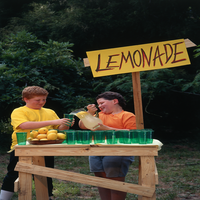Birth Order, Social Order and Intelligence

For many decades, experts have disagreed about the impact of birth order on intellect, achievement and emotional and cognitive skills.
Some have claimed that first-born children get more undivided attention from their parents and so develop faster and become more cognitively competent.
Others have claimed that birth order might have an impact because of differences in the womb before birth. The idea was that with each subsequent pregnancy the mother produces higher and higher levels of antibodies that may attack the fetal brain.
Other researchers claim that the relationship between birth order and intelligence is false, having been biased by family size. Historically there has been a tendency couples with lower IQs to have more children than couples with higher IQs. But that is also hard to support: there are many cultures and religions in which high IQ couples have many children.
Three years ago, Dalton Conley, a sociologist from New York University and director of the Center for Advanced Social Science Research published a fascinating book, The Pecking Order, in which he used data from the U.S. Census, the General Social Census Survey conducted at the University of Chicago over the last thirty years, as well as a prospective study launched in 1968, at the University of Michigan. He came to the conclusion that siblings diverge widely in social status, wealth and education. We can all remember examples in the news: of a President with a drug using brother and a professor whose brother was a convict. There are scores of other cases like these.
In Dalton’s model, there are genetic, social and birth order reasons for these family inequalities. Most families establish a hierarchy that predicts a child’s success and role within a family. Where you are in that hierarchy is only partly determined by birth order. Dalton argued that what really matters is family size, parental time and attention, and how much of the family’s financial resources are available for the child. His research showed that no single factor could predict success or failure in life. That makes good sense, though when we look at family hierarchies there is likely a strong cultural and ethnic factor at play. In some cultures first-born boys still receive a great deal more favoritism than the other children.
Now a Norwegian team has reported in the journal Science that first born children and those who had lost older siblings and had thereby become the eldest, scored higher on standard tests of intelligence. The IQ difference that they found in their study groups was small but significant.
The link was found by Professor Petter Kristensen at the National Institute of Occupational Health in Oslo, and Tor Bjerkedal at the Norwegian Armed Forces Medical Service who looked at more than 250,000 male Norwegian conscripts.
What they found in this large all male group was that it is the son’s social position in a family rather than his biological position that counts toward his intelligence.
For example, if a man was born third but then lost an elder sibling in early childhood, he would normally be raised as if had been born second. And his IQ as an adult would tend to be close to that of “genuine” second-borns.
It is going to be interesting to see whether there is a similar effect in girls, since they tend to grow up more quickly than boys.
The fact that the death of an older sibling “moves the child up” the IQ rankings is against something going on in the womb.
There are several possible reasons for this effect. More mature children often tend to become a surrogate parent. And because he or she is still young they will tend to become very conscientious, mature and self-disciplined. You have probably seen or known of a child who had to do a lot of growing up very quickly after the death of, or abandonment by, a parent.
Another possibility is that a first-born gets smarter because he or she tutors the younger siblings.
A complicating factor in this research is when a child “moves up” because of the death of an older sibling, the shock of losing a child may lead the family to expend even more care and attention on the surviving children, particular those most likely to be able to take over if anything happens to the parents.
And the other point I something that I have discussed before. There are genes that predispose you to having a certain type and degree of intelligence. But social and environmental factors continue to have a powerful impact.
I just read an article in which the parents of some mentally ill people were declaring that new research on the social triggers to mental illness was a waste of time, and that the “Answer” must be biological.
It is rarely that simple: genes, epigenetic factors, nutrition, personal experience and the social and emotional environment all need to be put into the mix if we want to understand why someone is the way that they are, and how we can help them to fulfill their potential.






